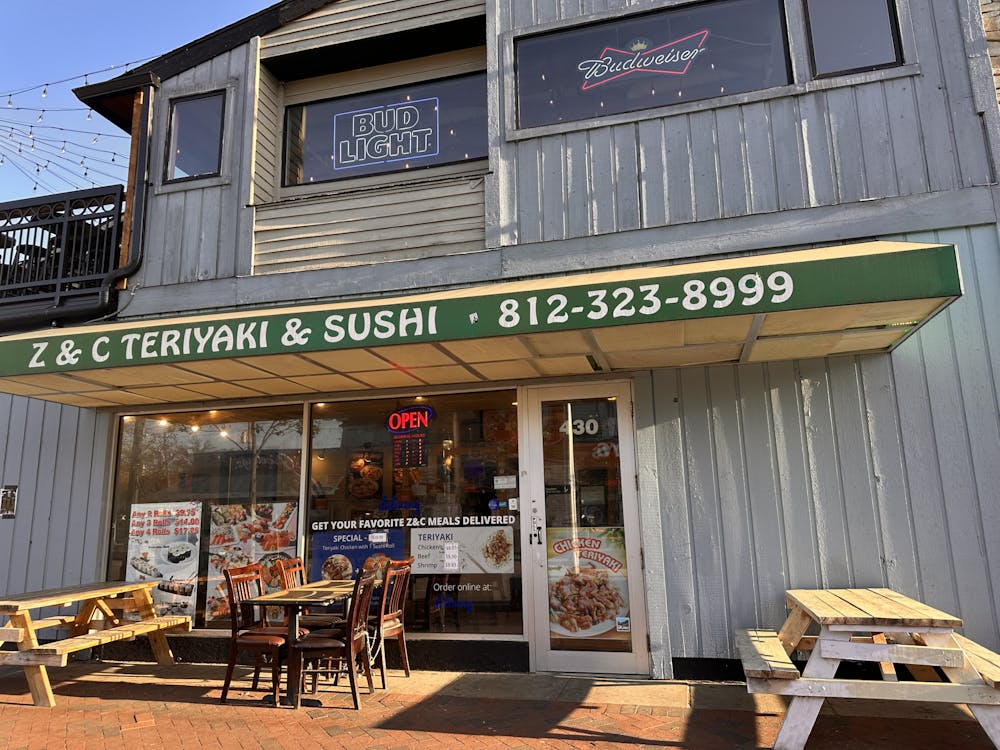A new bill waiting to be signed by Indiana Gov. Eric Holcomb would require third party food delivery services such as DoorDash, Grubhub and Uber Eats to get written consent from restaurants before listing them on their website or app.
Lawmakers in the Indiana Senate passed House Bill 1279 on April 3 after its passage in the Indiana House on Feb. 27. If Holcomb signs the bill, it would be effective July 1, 2023.
In addition to requiring written consent from restaurants to join the platform in the future, the bill, authored by Rep. Robb Greene, R-District 47, would also require restaurants to notify third-party food delivery services if they wish to terminate their contract. If a restaurant wants to terminate their contract with a food delivery service, the third-party food delivery service must remove the restaurant from their platform within a specified time period listed in the food delivery service’s contract. However, if there is no specified time period for termination in the contract, the food delivery service must remove the restaurant from their platforms within 72 hours of the termination notice.
[Related: Indiana bill aims to increase transparency in personal data collection]
If the food delivery service violates any part of the proposed bill, restaurants have the option to resolve the issue in court. If the court finds the food delivery service is in violation of the contract, restaurants are entitled to receive liquidated damages of a maximum of $50,000 per transaction after the agreed termination date.
IU junior and DoorDash driver Gavin Meng has driven for DoorDash since 2021. Meng was not aware that third party food delivery services didn’t need to receive consent from restaurants in order to put them on their platforms.
“I figured that would’ve been something they already needed to have — like some sort of partnership,” Meng said. “So, the fact that they don’t have to ask restaurants and just list them is a little bit strange.”
Meng chose to work for DoorDash because it had a flexible schedule and was a quick way to earn money during academic breaks. The app allows drivers to work on their own time.
While Meng said he doesn’t think HB 1279 would affect him or other food delivery drivers since they only pick up and drop off the food orders, he sees the possibility of fewer restaurants in the future being available on the app for customers because the restaurants would have to go through the process of giving written consent.
[Related: Indiana bill to require notification, not consent from parents if student changes name, pronouns]
“But at this point, I don’t see why (the restaurants) would say no,” Meng said. “It’s extra revenue for the restaurant, so it’s a win-win.”
IU freshman Kyra Horton works as a crew member at McDonalds located on Third Street and said the specific location has three different positions: drive-thru, front counter and food delivery service orders. Horton said food delivery service orders don’t add extra workload with other orders they receive because of how constantly busy the location is.
However, the owner of Baked! of Bloomington Jeremy Ness said in an email that the bakery’s overall business, including its revenue and number of customers, has grown because it uses third-party food delivery services like DoorDash and Delivery.com. However, Ness said in the email the company has experienced complications with third party platforms before. The business used to be listed on the EnvoyNow platform, a third-party food delivery service primarily targeting college students that is no longer active, but there was no prior consent or communication between the bakery and delivery platform, which caused issues with their customers.
“They completely bungled our menu setup, and it resulted in angry customers having no recourse to get their issues resolved,” Ness said in the email. “This is one of many laws that I would support and that I think are necessary to prevent these Wall Street-backed firms from steamrolling our small businesses.”




